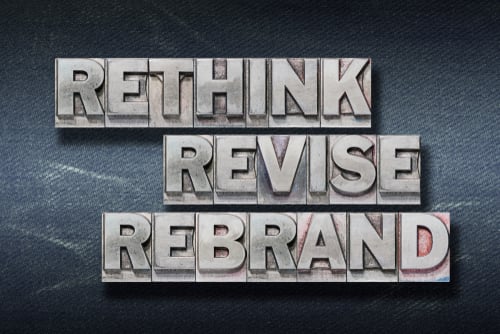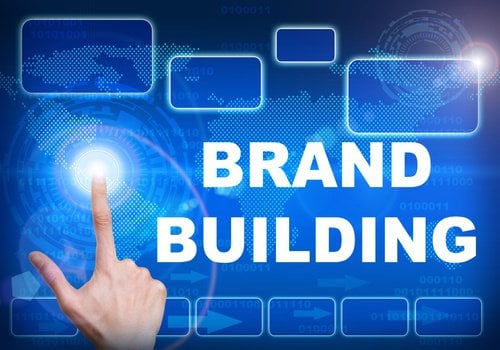
In today's crowded and commoditized business landscape, B2B marketers are becoming more customer-centric and ramping up their branding efforts. A brand-building imperative has always been to create an emotional connection with consumers. However, focusing on business value to differentiate their brands assumes customers make purely rational decisions. Is this assumption correct? Does emotion actually play a role?
According to Forrester’s 2018 US Customer Experience Index (CX Index™), CX advancements were sluggish for the third consecutive year. Firms ranking at the very bottom of the index have reordered a bit, but not one leader has pulled ahead of the rest.
The results indicate that many brands don’t fully understand what matters to their customers and have focused efforts on low-hanging fruit rather than delivering experiences of critical value.
“If brands want to break away from the pack and become CX leaders, they must focus on emotion.” —Cliff Condon, Forrester chief research and product officer
Don’t Underestimate Emotional Connections
B2C brands can evoke strong feelings among consumers, but recent studies suggest B2B customers are even more emotionally connected to their vendors. Gartner conducted cross-industry research with more than 3,000 B2B customers and one of the key assertions that surfaced, was the importance of focusing on B2B buyers as individuals and as human beings with emotions.
On average, B2B buyers are considerably more emotionally connected to their vendors and service providers than consumers. Why is that?
One explanation lies in the decision-making process. Although many people in an organization might be involved in making a purchase decision, for the key stakeholders, a B2B purchase includes personal risks. If the purchase decision ends badly, stakeholders risk losing time and credibility or worse—their jobs. With so much at stake, it’s reasonable that people feel a stronger connection to a vendor as compared to a consumer brand.
Yes, business decisions are primarily driven by hard data and results, but behind every relationship and purchase are people. Moreover, when it’s time to renew a contract or buy another product, the question, “am I treated and respected as a valued customer?” can influence purchasing plans and sway recommendations.
When a B2B prospect is struggling with a significant problem that’s hindering their growth or causing chaos in their day-to-day business life, it’s vital that their perception of your brand goes beyond “best industrial flooring.” Instead, you should be striving to make an emotional impact as the brand that can improve their lives, resolve their problem, or make their dreams a reality.
What emotions should you focus on to differentiate from the competition in a crowded B2B market?
Our brand strategy consulting partners advise clients that understanding the emotions and satisfaction levels of your B2B partners is the first step towards uncovering what drives their decisions. What excites their business passions and, equally important, how they feel about you and your products, are key to ensuring you remain a preferred, trusted partner. For example, how confident are they in their dealings with you? Do they trust you? Do they need reassurance? Their responses to these questions can unlock new and useful strategic information and help you build better relationships with B2B partners. In B2B, emotions like happiness and trust are essential to successful business relations, but so too is minimizing negative emotions, such as frustration and anger.
So how do you help your B2B partners make the best decision and win the best results to enhance your long-term relationship?
B2B and B2C techniques have never been more similar–many of the strategies for success now crossover. The practices you use to maximize customer satisfaction may also be effective in a B2B capacity (e.g., ensuring your partners receive as much information as possible about your products and services and focusing on transparency by publishing your prices). When it comes to sealing the deal, remove red tape and unnecessary complications from your contracts and purchasing processes and make it as easy as possible for your partners to spend their money with you.
Decision makers at your partner businesses need to feel you are credible and trustworthy– without feeling you are exploiting them for financial gain. The basis for business relationships is respect, trust, and mutual benefit. Anything that can influence these elements can impact the business relationship.
The emotions of your B2B partners are just as important as the emotions of your B2C contacts. Tapping into the emotions of partners and developing strategies to reassure them about your business differentiates your brand from the competition and builds confidence and healthier, more profitable bottom lines.
Recent Posts
Posts by Topics
- Brand Strategy (57)
- Brand Strategy Consulting (28)
- Brand Differentiation (27)
- Customer Experience (24)
- Brand Positioning (22)
- Marketing Strategy (9)
- Brand Extension Strategy (8)
- Customer Behavior (8)
- Brand Architecture Strategy (7)
- Brand Extension (7)
- Brand Growth (7)
- Brand Portfolio & Architecture (7)
- Brand Purpose (7)
- Brand Value Proposition (7)
- Brand Engagement (6)
- Brand Portfolio Strategy (6)
- Brand Storytelling (6)
- Rebranding Strategy (6)
- Brand Awareness (5)
- Brand Image (5)
- Branding (5)
- Rebranding (5)
- Technology (5)
- B2B Brand Strategy (4)
- Brand Experience (4)
- Value Proposition (4)
- Brand Extendibility (3)
- Brand Metrics (3)
- Brand Repositioning (3)
- Corporate Branding (3)
- Differentiation Strategy (3)
- Measurement & Metrics (3)
- Brand Engagement Strategy (2)
- Brand Portfolio (2)
- Brand Promise (2)
- Brand Voice (2)
- Digital Marketing (2)
- Digital and Brand Experience (2)
- Employee Brand Engagement (2)
- Brand Architecture (1)
- Brand Development (1)
- Brand Equity (1)
- Brand Identity (1)
- Brand Measurement (1)
- Brand Name (1)
- Brand Strategy Consultants (1)
- Brand Strategy Firms (1)
- Digital Strategy (1)
- Internal Branding (1)
- Messaging (1)


